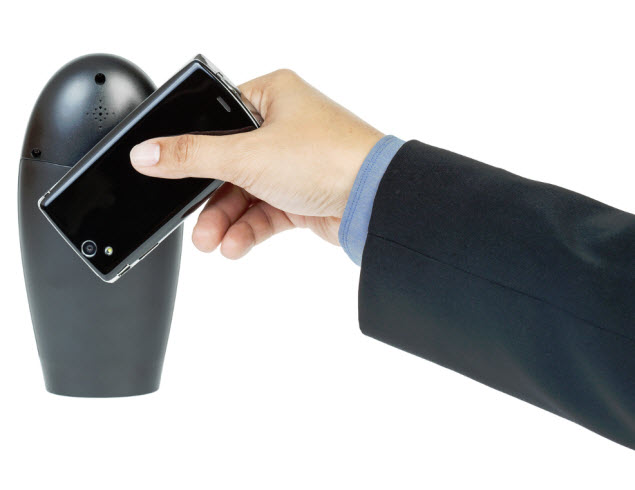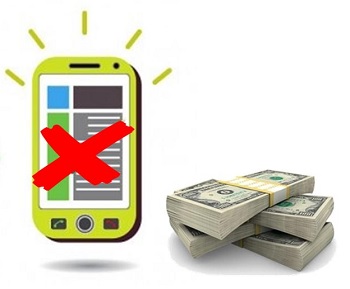Apple could finally embrace NFC technology in the near future
Investment firm Morgan Stanley believes that Apple will finally embrace NFC technology through a platform called “iWallet.” This is not the first such prediction to be made concerning Apple and NFC, but past forecasts regarding the pairing have failed to live up to reality. Apple has avoided NFC largely because of its concerns regarding the technology’s security and capabilities, but this avoidance mostly involved Apple’s use of NFC in mobile payments.
NFC has come under fire in recent years due to technical problems and security issues
NFC currently forms the backbone of most mobile payments services throughout the world. The technology allows for digital information to be transmitted over short distances, making an ideal commerce tool. The technology does, however, have some security issues that have been exposed through high profile attacks on mobile services that make use of NFC. These security issues have made many consumers leery of mobile payments and has even lead some large companies, such as Google, to remove NFC support from some of their leading mobile initiatives.
Apple may be growing fonder of NFC technology
 Apple’s wireless endeavors have largely focused on iBeacon, which debuted last year and represents a sort of combination of Wi-Fi and Bluetooth technology. Morgan Stanley predicts, however, that Apple is growing more confident in the abilities of NFC and the company could include the technology in future devices. As NFC sees more use, it is becoming more advanced and secure, making it more attractive to companies that have opted to take a cautious approach to the mobile payments space.
Apple’s wireless endeavors have largely focused on iBeacon, which debuted last year and represents a sort of combination of Wi-Fi and Bluetooth technology. Morgan Stanley predicts, however, that Apple is growing more confident in the abilities of NFC and the company could include the technology in future devices. As NFC sees more use, it is becoming more advanced and secure, making it more attractive to companies that have opted to take a cautious approach to the mobile payments space.
Apple would focus on security if it does choose to integrate NFC into future mobile devices
If Apple does embrace NFC technology, Morgan Stanley predicts that the company will focus on security. The company may choose to incorporate an NFC chip into future devices that works alongside a secure element that will store consumer financial information. The NFC chip would transmit this information when a payment is authorized by the device’s owner, using a fingerprint or other biometric information to authenticate the owner.
The results of a survey conducted by Sage North America showed this is the case despite perceived value.
Sage North America has revealed the results of its most recent Sage SMB Survey on Mobile Devices, which included findings on a number of different industries and sectors that see potential value in mobile technology, but that do not set an annual budget to meet those needs.
Among the sectors included in this survey were food and beverage, manufacturing and distribution, and construction.
Those specific industry sectors felt that mobile technology could be overwhelmingly positive in terms of the impact that it has on business, but the vast majority of companies in these areas only purchase solutions in this category as the need arises, instead of setting an annual budget for this tech. According to the Sage North America executive vice president and general manager of mid-market solutions, Joe Langner, “With more than 40 percent reporting that they have a BYOD (bring your own device) policy in place, employers in all three industries may not see the need to budget for mobile since BYOD helps ensure that expenses are relatively small.”
At the same time the survey results still suggested that it is worthwhile for companies to plan for mobile technology.
 Langner stated that it is evident that businesses are seeing the gains in productivity, which indicates that regardless of whether the tech is used as a part of an official BYOD (bring your own device) policy or for a specific item, this type of planning is worthwhile.
Langner stated that it is evident that businesses are seeing the gains in productivity, which indicates that regardless of whether the tech is used as a part of an official BYOD (bring your own device) policy or for a specific item, this type of planning is worthwhile.
In manufacturing and distribution, the survey showed that 74 percent of companies are not creating a budget for these devices or mobile apps. That said 51 percent of those companies do actually use mobile devices as they have perceived their benefits. Among those, 76 percent have at least one employee that uses a laptop, 74 percent has at least one employee that uses a smartphone, and 49 percent have at least one employee that uses a tablet.
In construction, 77 percent of companies said that smartphones provided a positive impact on the productivity of their organization, though under 14 percent had a budget for the hardware or software.
Food and beverage saw the most positive impact of mobile technology in their customer service (73 percent). Among the respondents, one pointed out that these devices help to “answer questions even when we are not in the office.”
 Apple’s wireless endeavors have largely focused on iBeacon, which debuted last year and represents a sort of combination of Wi-Fi and Bluetooth technology. Morgan Stanley predicts, however, that Apple is growing more confident in the abilities of NFC and the company could include the technology in future devices. As NFC sees more use, it is becoming more advanced and secure, making it more attractive to companies that have opted to take a cautious approach to the mobile payments space.
Apple’s wireless endeavors have largely focused on iBeacon, which debuted last year and represents a sort of combination of Wi-Fi and Bluetooth technology. Morgan Stanley predicts, however, that Apple is growing more confident in the abilities of NFC and the company could include the technology in future devices. As NFC sees more use, it is becoming more advanced and secure, making it more attractive to companies that have opted to take a cautious approach to the mobile payments space.
 Langner stated that it is evident that businesses are seeing the gains in productivity, which indicates that regardless of whether the tech is used as a part of an official BYOD (bring your own device) policy or for a specific item, this type of planning is worthwhile.
Langner stated that it is evident that businesses are seeing the gains in productivity, which indicates that regardless of whether the tech is used as a part of an official BYOD (bring your own device) policy or for a specific item, this type of planning is worthwhile.